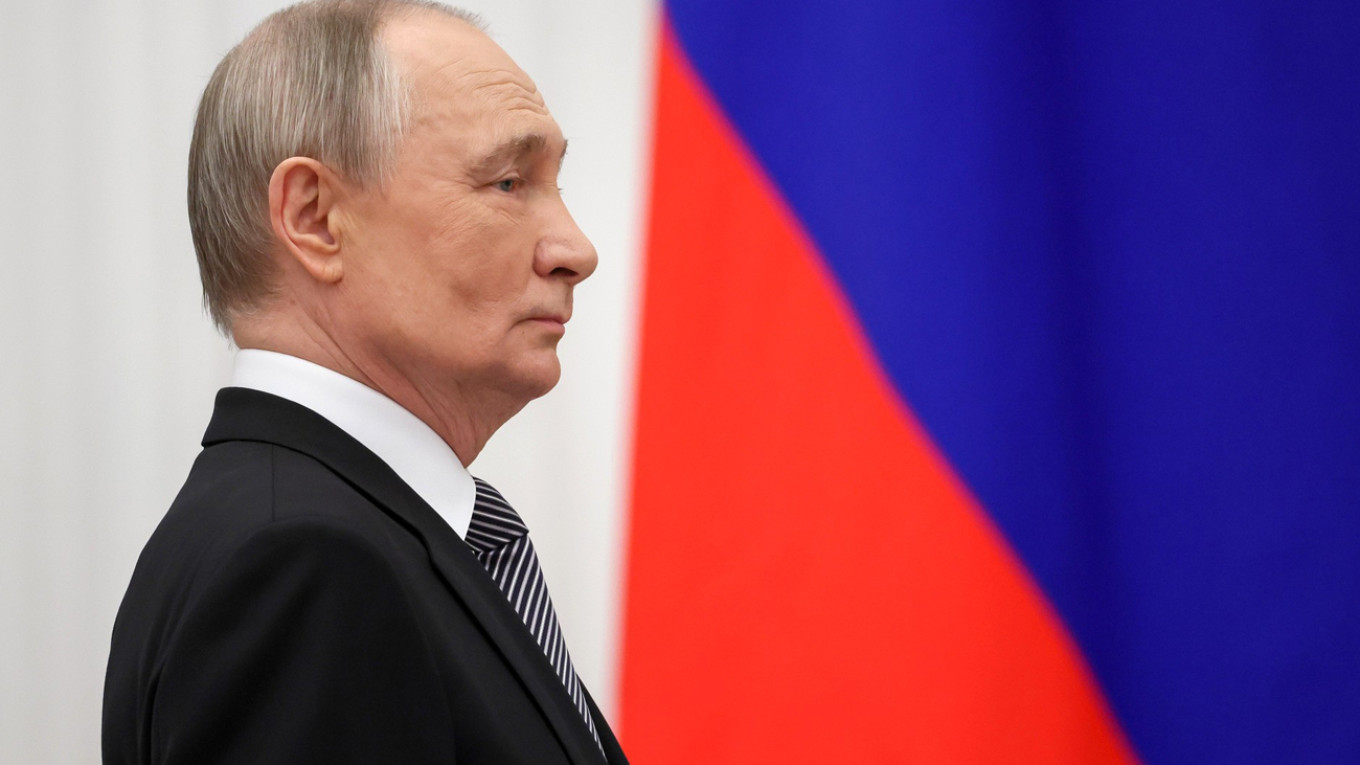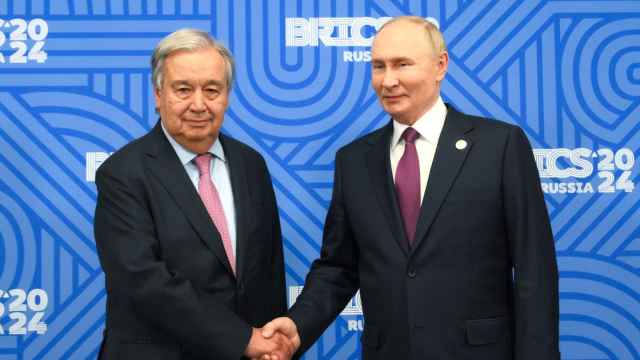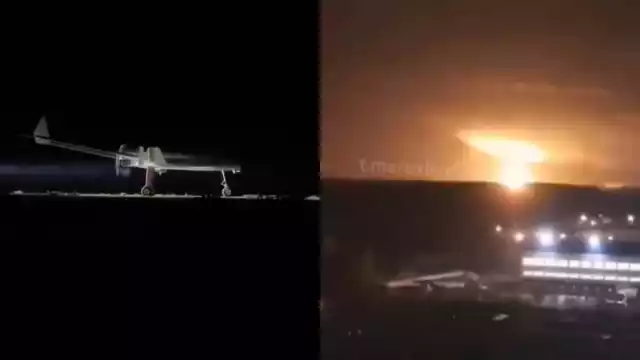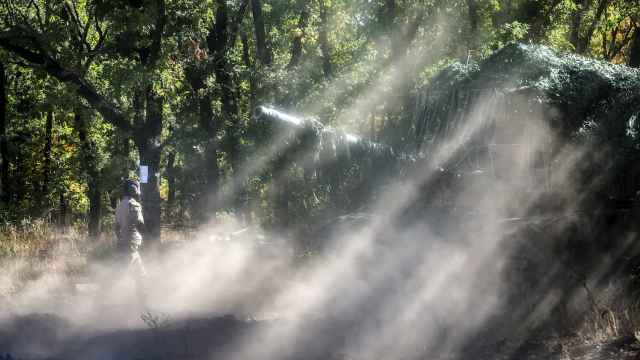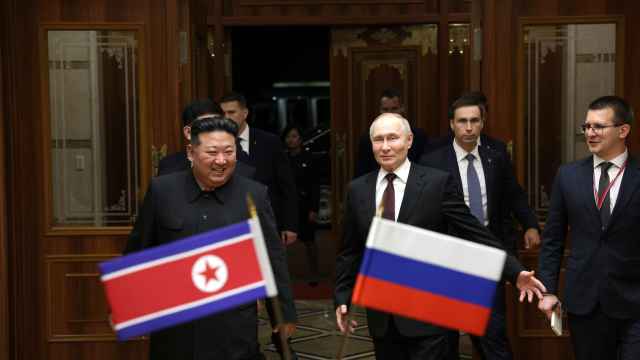Russian President Vladimir Putin on Monday ordered a temporary ceasefire in Ukraine during next week’s Victory Day celebrations, which mark the 80th anniversary of the Soviet Union’s victory over Nazi Germany in World War II.
According to a statement published by the Kremlin, the ceasefire, which was declared “out of humanitarian considerations,” will begin at midnight on May 8 and last until midnight on May 11. All military operations will be suspended during this period, the statement added.
“Russia believes that the Ukrainian side should follow this example,” the Kremlin said. “In the event of ceasefire violations by Ukraine, the Armed Forces of the Russian Federation will respond appropriately and effectively.”
Moscow also said it “reaffirms its readiness for peace negotiations without preconditions, aimed at addressing the root causes of the Ukrainian crisis and engaging constructively with international partners.”
While there was no immediate comment from Ukrainian President Volodymyr Zelensky, Ukraine’s Foreign Minister Andrii Sybiha urged Russia to agree to a broad ceasefire.
“Why wait until May 8th? If the fire can be ceased now and since any date for 30 days — so it is real, not just for a parade,” Sybiha wrote on social media. “Ukraine is ready to support a lasting, durable and full ceasefire. And this is what we are constantly proposing, for at least 30 days.”
Putin last ordered a ceasefire during the Easter weekend, which appeared to initially catch Ukraine off guard, though Zelensky later said he backed the idea as it could pave the way for a broader truce between the two countries.
While the Easter ceasefire did see a lull in fighting, both Ukraine and Russia accused each other of violating the pause in hostilities. Since then, the warring sides have been unable to agree to an unconditional 30-day ceasefire that the United States first proposed last month.
Russia’s second unilaterally announced ceasefire in recent weeks serves mainly as a public relations move aimed at shaping international perceptions, a Russian official familiar with the Kremlin’s foreign policy thinking told The Moscow Times.
“We are sending a signal to the outside world: we are peace-loving, and they [in Ukraine] are terrorists — referring, for example, to the recent killing of General Moskalik,” said the official, who was granted anonymity to talk candidly about the situation.
“Another intended recipient of this signal is the U.S. president himself: ‘Look, Mr. Trump, we are trying,’” the official added.
U.S. President Donald Trump expressed rare criticism of Putin last week after the Russian military launched a deadly air attack against Kyiv. He called on the Kremlin leader to stop strikes on Ukraine and “get this Peace Deal DONE.”
Trump met with Zelensky at the Vatican over the weekend, after which he suggested that Putin may not be interested in ending the war.
Military analyst David Sharp agreed with the view that the surprise Victory Day ceasefire is more about gaining diplomatic leverage than laying the groundwork for military de-escalation between the two warring sides.
“From a military standpoint, it makes no real difference. It’s just a day or two,” Sharp told The Moscow Times. “To bring about any noticeable improvement would take weeks.”
White House Press Secretary Karoline Leavitt said Monday that Trump is “increasingly frustrated” with both Zelensky and Putin as he struggles to mediate an end to the war.
“I understand Vladimir Putin this morning offered a temporary ceasefire. The president has made it clear he wants to see a permanent ceasefire first,” Leavitt told reporters at a White House press briefing.
“Both leaders [of Russia and Ukraine] need to come to the table to negotiate their way out of this,” she added.
Pyotr Kozlov contributed reporting.
A Message from The Moscow Times:
Dear readers,
We are facing unprecedented challenges. Russia's Prosecutor General's Office has designated The Moscow Times as an "undesirable" organization, criminalizing our work and putting our staff at risk of prosecution. This follows our earlier unjust labeling as a "foreign agent."
These actions are direct attempts to silence independent journalism in Russia. The authorities claim our work "discredits the decisions of the Russian leadership." We see things differently: we strive to provide accurate, unbiased reporting on Russia.
We, the journalists of The Moscow Times, refuse to be silenced. But to continue our work, we need your help.
Your support, no matter how small, makes a world of difference. If you can, please support us monthly starting from just $2. It's quick to set up, and every contribution makes a significant impact.
By supporting The Moscow Times, you're defending open, independent journalism in the face of repression. Thank you for standing with us.
Remind me later.


